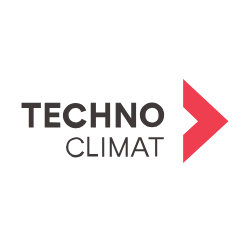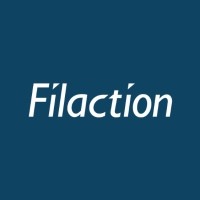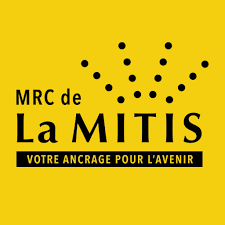
Closed
Innovation program — Call for mobilizing projects on the development of tomorrow's transport technologies
Last Update: March 4, 2026
QC, Canada
Supports Quebec aerospace companies in innovative transport technology development
Grant and Funding
At a glance
Funding available
Financing goals
Develop a new product
Develop employee skills
Eligible Funding
- Maximum amount : 10,000,000 $
- Minimum amount : 4 $
- Up to 50% of project cost
Timeline
- Receipt of requests is now closed
Eligible candidates
Eligible Industries
- Transportation and warehousing
Location
- Quebec
Legal structures
- For-profit business
Annual revenue
- All revenue ranges
Organisation size
- 250 employees maximum
Audience
- Startups
Overview
The Innovation Program's call for mobilizing projects focuses on developing tomorrow's transport technologies and offers up to $10 million in non-repayable funding per project. This initiative supports Quebec enterprises in aerospace, promoting the design and demonstration of innovative manufacturing processes and technological solutions.
Activities funded
- Development of a new product in the aerospace sector.
- Creation of a new innovative manufacturing process in partnership with other enterprises and public research centers.
- Implementation of new technological solutions contributing to the diversification of Quebec's aerospace industry.
- Innovative technical demonstrations in collaboration with at least two private enterprises.
Examples of admissible projects:
$ 6,800,000
Creating advanced aerodynamic designs for next-gen aircraft
$ 8,000,000
Implementing AI-based predictive maintenance for aircrafts
$ 5,200,000
Developing autonomous navigation system for drones
$ 7,500,000
Developing a green propulsion system in aerospace sector
$ 6,000,000
Creating ultra-lightweight aircraft materials
Eligibility
- The project must include a partnership of at least two private companies.
- The companies must be legally constituted under the laws of Quebec or Canada.
- These companies must be registered with the Quebec Enterprise Registrar and possess a Quebec Enterprise Number (NEQ).
- They must have an operational establishment in Quebec focused on the production of goods and services or internal research and development activities.
- The majority of their revenue must stem from manufacturing activities or service provision.
- They should not be affiliated or have control over one another directly or indirectly, unless authorized by the minister.
- Companies must financially contribute to the project's realization and its activities.
- Cost, benefit, and intellectual property sharing must be present in the innovation project.
- They cannot be bound by a service offer or subcontract with another project partner.
- Partners need to establish a new non-profit organization (NPO) responsible for managing the mobilizing project.
- SMEs (Small to Medium Enterprises) are defined as having 250 employees or fewer in Quebec. For foreign companies with a Quebec subsidiary, the total must not exceed 500 employees both in Quebec and abroad.
Who is eligible?
- Quebec-based companies in the aerospace sector
- Small and medium-sized enterprises (SMEs) with projects in design, demonstration, or innovation
- Partnerships between two or more private companies and public research centers
- Companies developing new products, manufacturing processes, or technological solutions in aerospace
Who is not eligible
- Compagnies contrôlées directement ou indirectement par un gouvernement (provincial ou fédéral) ou une entité municipale.
- Entreprises majoritairement détenues par une société d'État.
- Entreprises sous la protection de la Loi sur les arrangements avec les créanciers des compagnies ou de la Loi sur la faillite et l'insolvabilité ou qui le deviennent durant le projet.
- Entreprises inscrites sur la Liste des entreprises non conformes au processus de francisation.
- Entreprises inscrites au Registre des entreprises non admissibles aux contrats publics (RENA).
- Entreprises qui ont omis de respecter leurs obligations après mise en demeure concernant un octroi antérieur d'une aide financière du Ministère ou d'Investissement Québec.
- Entreprises avec des comportements éthiques susceptibles de ternir l'image d'intégrité du gouvernement du Québec.
- Sociétés de portefeuille (holding).
- Entreprises avec des activités impliquant la production ou la distribution d'armes.
- Entreprises engagées dans l'exploration, l'extraction, le forage, la production, et le raffinage d'énergies fossiles, sauf pour des activités de transition vers une économie sobre en carbone.
- Entreprises opérant dans les jeux de hasard et d'argent, les jeux violents, les sports de combat impliquant toutes espèces vivantes, ou des activités similaires.
- Entreprises impliquées dans l'exploitation sexuelle.
- Entreprises liées à la production, la vente, et les services liés à la consommation de tabac ou de drogues, sauf pour des interventions liées au cannabis et au chanvre industriel.
- Entreprises dont le sujet principal est protégé par la Charte canadienne des droits et libertés (religion, politique, défense de droits, etc.).
Eligible expenses
- Costs of direct labor dedicated to the project and residing in Quebec, including social benefits (excluding bonuses) and contributions to mandatory schemes. Salaries for this workforce during foreign travels undertaken as part of the mobilizing project, with IQ's written consent, are considered eligible.
- Labor costs directly responsible for project management. Salaries for this workforce during foreign travels are considered eligible, with IQ's written agreement provided within 10 working days from a partner's request.
- Fees for external consultants based in Quebec, not exceeding 5% of eligible project expenses.
- Specialized services and subcontracting (research, prototyping, machining, etc.).
- Costs of foreign experts coming to Quebec, up to 5% of eligible project expenses, provided they are present in Quebec as part of the mobilizing project.
- Travel expenses, in accordance with current government regulations set out in the Quebec government management policy compendium, not exceeding 5% of the eligible project expenses.
- Acquisition of equipment and raw materials from non-affiliated companies, including specialized computer tools, with costs calculated according to accounting principles for annual amortization, as well as raw material purchases. The cumulative value of equipment acquisitions and purchases of raw materials from outside Quebec is limited to 25% of eligible project expenses.
- Equipment rental for a period not exceeding the project duration, including installation, removal, and return costs, except in the cases of leasehold improvements or permanent infrastructure.
- Transportation costs for equipment and materials.
- Costs related to a study including the evaluation of various aspects (e.g., markets, processes, technologies, acquisition of patents or certifications, costs and schedules, compliance with standards) and the creation of requirement specifications, not exceeding 5% of eligible project expenses.
- Costs of using a license required by a non-affiliated company or organization for the project duration.
- Communication activities expenses on all platforms, including social media, not exceeding $10,000 per partner.
- Costs for preparing an intellectual property protection strategy for obtaining or acquiring rights or intellectual property licenses (including patent application agent fees).
- External testing and certification costs, where applicable.
- Project verification and standards compliance costs conducted by external auditors.
- Certification activity costs, where applicable.
- In-kind contributions, provided they do not exceed 10% of the project's eligible expenses.
- Costs associated with the project management and reporting to the Ministry by the newly created OBNL designated by the partners, including creation costs, project start-up costs, direct management and monitoring costs (salaries, external consulting fees, phone, Internet, computer expenses, travel and accommodation costs according to government norms), audit costs for the OBNL's records by an external auditor, and costs for producing final deliverables. The total project management costs cannot exceed $200,000 per year, with up to 50% or $100,000 financed by the Ministry.
Eligible geographic areas
- Quebec
Selection criteria
- The character of innovation and the potential for commercialization of the project (30%).
- The economic benefits to Quebec during and after project completion (30%).
- The partners involved and the quality of the partnership (15%).
- The mobilizing nature of the project (10%).
- The environmental and social characteristics of the project (10%).
- The governance of the project (5%).
How to apply
1
Preparation of submission documents
- Carefully read the Application Presentation Guide.
- Gather all required documents, including a detailed description of the project and its economic impacts.
- Complete the financial assistance application form associated with the relevant component.
- Prepare necessary appendices such as the schedule of major activities and the history of funded mobilizing projects.
2
Acknowledgment of official documents
- Request a copy of the standard financial aid agreement at the indicated address.
- Familiarize yourself with this agreement.
3
File saving
- Save the form to your computer and avoid filling it out in a web browser.
- Make sure not to modify the PDF document after saving it.
4
Electronic submission
- Ensure that all required information and documents are complete and accurate.
- Send the request by email to the indicated address before the deadline.
5
Acknowledgment of receipt
Wait for the electronic acknowledgment of receipt to confirm that the request has been received.
Additional information
- The financial assistance will be in the form of a non-repayable grant covering up to 50% of eligible expenses.
- The maximum financial assistance available for a project is $10 million.
- The total public assistance rate, including this grant and other public aid, cannot exceed 70% of eligible expenses.
- Partner companies must each provide at least 30% of the total eligible project costs.
- Specific conditions apply for intellectual property rights, particularly regarding non-Quebec entities during the five-year period following the project's completion.
- An independent auditor's report is required annually for the project's duration.
- A minimum of 5% of the project’s eligible expenses should be allocated to Quebec universities and public research centers.
- The industrial impact for Quebec should be maximized through the project and subsequent commercialization.
- All partners must contribute to the creation of a new non-profit organization (NPO) to manage the project and are involved in its governance.
- At least two Quebec private enterprises must be involved as partners in the project.
Contacts
pi.transports.demain@economie.gouv.qc.ca
QC, Canada
Apply to this program
Frequently Asked Questions about the Innovation program — Call for mobilizing projects on the development of tomorrow's transport technologies Program
Here are answers to the most common questions about the Innovation program — Call for mobilizing projects on the development of tomorrow's transport technologies. This section explains what the program is, how much funding is available, eligibility requirements, application deadlines, and other important details to help you determine if this grant is right for your business.
What is the Innovation program — Call for mobilizing projects on the development of tomorrow's transport technologies?
How much funding can be received?
Who is eligible for the Innovation program — Call for mobilizing projects on the development of tomorrow's transport technologies program?
What expenses are eligible under Innovation program — Call for mobilizing projects on the development of tomorrow's transport technologies?
Who can I contact for more information about the Innovation program — Call for mobilizing projects on the development of tomorrow's transport technologies?
Where is the Innovation program — Call for mobilizing projects on the development of tomorrow's transport technologies available?
Is the Innovation program — Call for mobilizing projects on the development of tomorrow's transport technologies a grant, loan, or tax credit?
Apply to this program
More programs like this

Grant and FundingClosed
Program for efficiency in maritime, air, and rail transport - Infrastructure and equipment component
Supports infrastructure projects reducing greenhouse gas emissions in transportation

Grant and FundingClosed
Maritime, Air, and Rail Transportation Efficiency Program - Pilot Project Component
Supports clean technology pilot projects in maritime, air, and rail

Grant and FundingClosed
Maritime, Air, and Rail Transportation Efficiency Program - Studies Component
Supports studies to improve efficiency in maritime, air, and rail transport

Grant and FundingOpen
Technoclimat
Financial assistance for the demonstration of new technologies in Quebec


Grant and FundingOpen
Regions and Rurality Fund (RRF) - Component 1 - Support for regional outreach
Supports regional projects impacting Quebec's territories and communities

Grant and FundingSuspended
Innovation Program — Stream 1 – Support for mobilising projects
Transport technology innovation projects funding in Quebec

Loans and Capital investmentsOpen
Mosaic Fund
Business loans for Quebec's cultural communities entrepreneurs

Grant and FundingClosed
Mitis MRC — Regional and Rural Fund (RRF) - Component 1
Supports regional development in agriculture, tourism, and transportation

Grant and FundingClosed
PSCE – Component 2
Non-repayable funding to support SMEs’ export market diversification
Sign up to our platform to access the Innovation program — Call for mobilizing projects on the development of tomorrow's transport technologies information sheet for free
Get access to 10,000+ programs, practical guides, personalized alerts, and an AI assistant to support your grant applications.